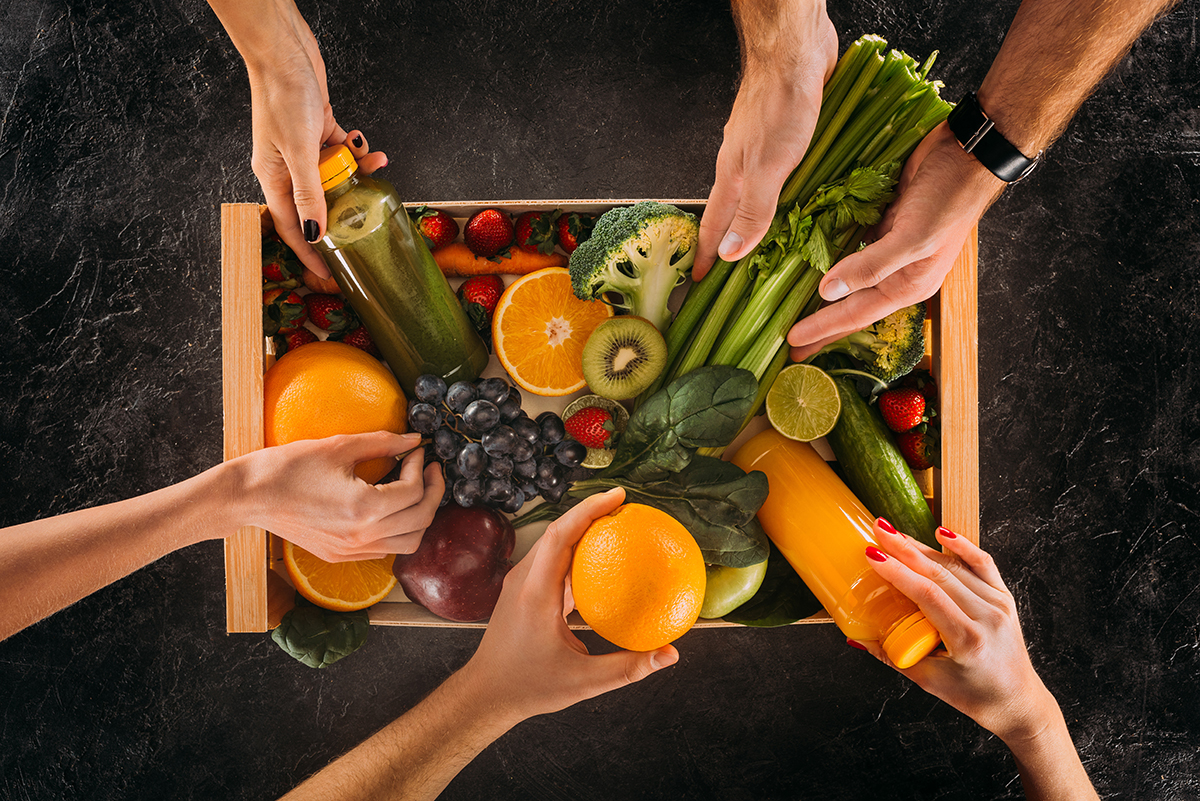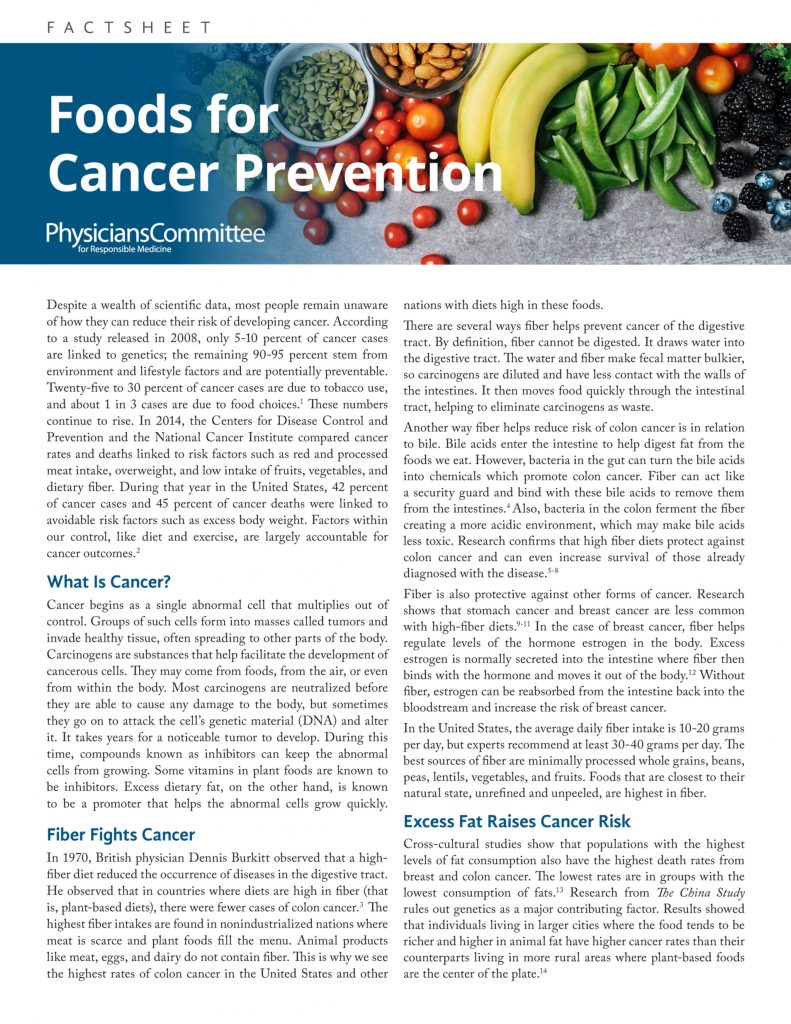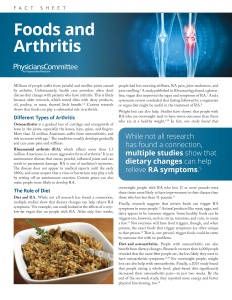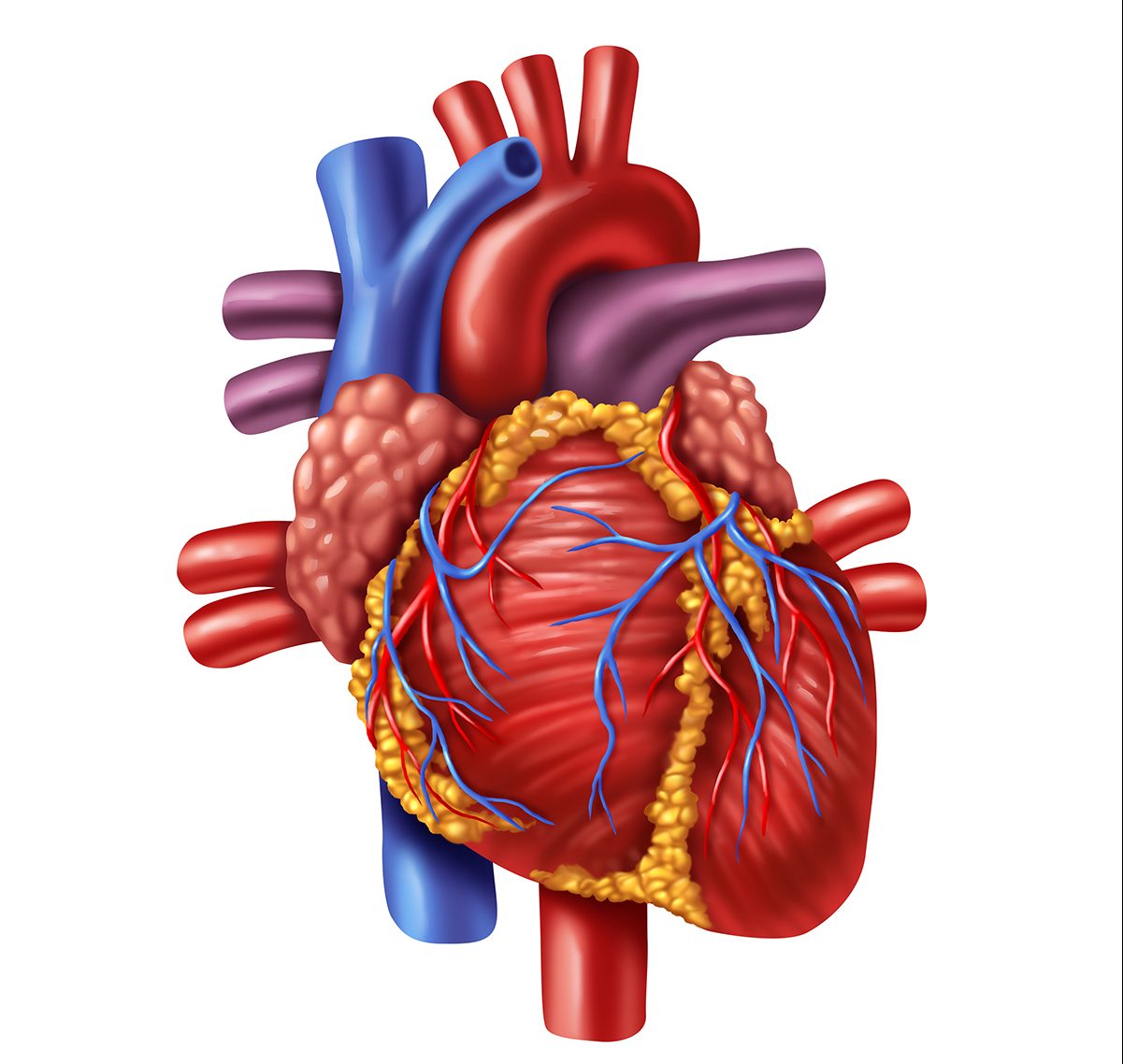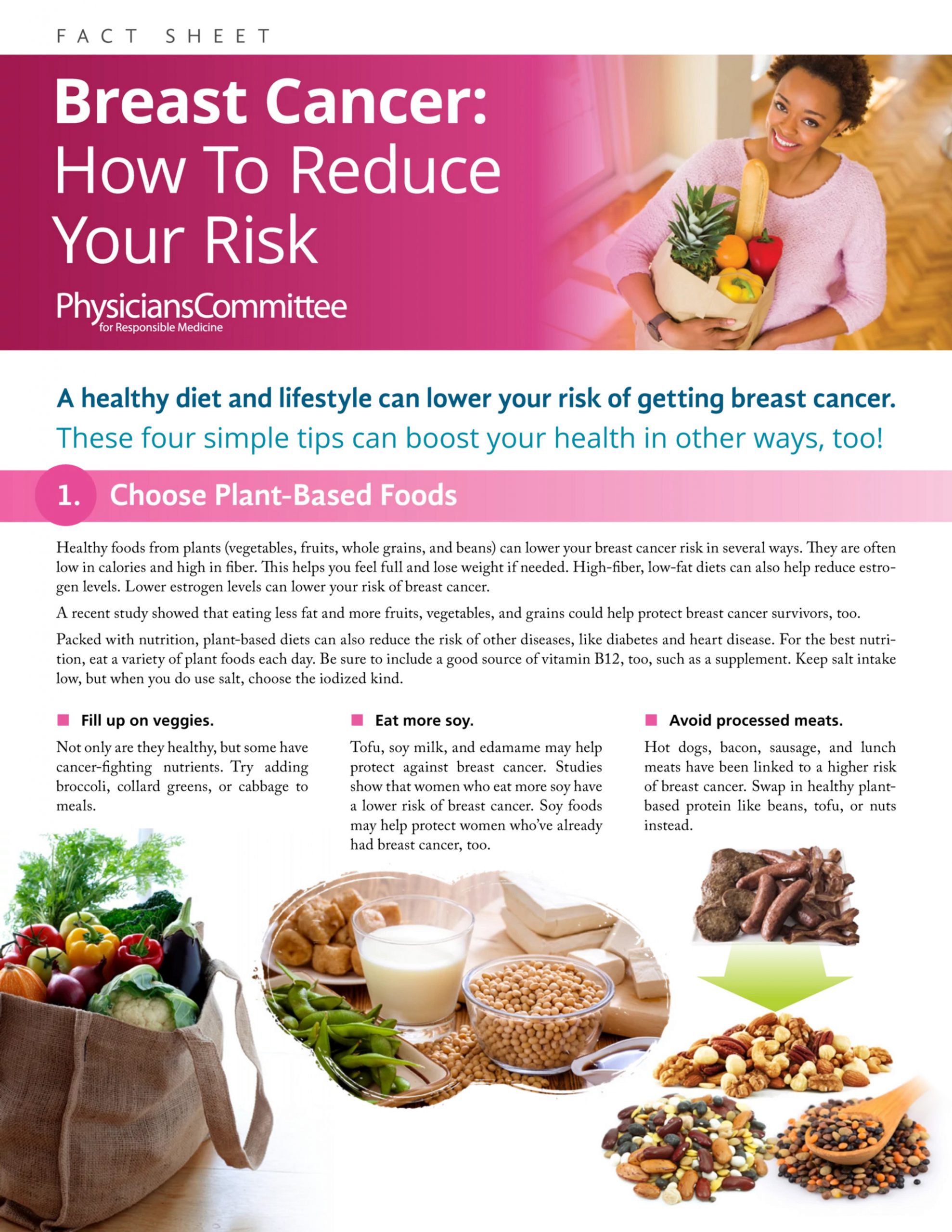Foods for Cancer Prevention
Despite a wealth of scientific data, most people remain unaware of how they can reduce their risk of developing cancer. According to a study released in 2008, only 5-10 percent of cancer cases are linked to genetics; the remaining 90-95 percent stem from environment and lifestyle factors and are potentially preventable. Twenty-five to 30 percent of cancer cases are due to tobacco use, and about 1 in 3 cases are due to food choices. These numbers continue to rise.
In 2014, the Centers for Disease Control and Prevention and the National Cancer Institute compared cancer rates and deaths linked to risk factors such as red and processed meat intake, overweight, and low intake of fruits, vegetables, and dietary fiber. During that year in the United States, 42 percent of cancer cases and 45 percent of cancer deaths were linked to avoidable risk factors such as excess body weight. Factors within our control, like diet and exercise, are largely accountable for cancer outcomes.
Download the Physicians Committee for Responsible Medicine’s Fact Sheet, Foods for Cancer Prevention, to read the rest of this article. Feel free to download and share this free resource.
The Physicians Committee for Responsible Medicine is a 501(c)(3) nonprofit organization, headquartered in Washington, DC. Our efforts are dramatically changing the way doctors treat chronic diseases such as diabetes, heart disease, obesity, and cancer. By putting prevention over pills, doctors are empowering their patients to take control of their own health.
Fact sheet shared with permission from PCRM. Click here to view other PCRM Fact Sheets.

